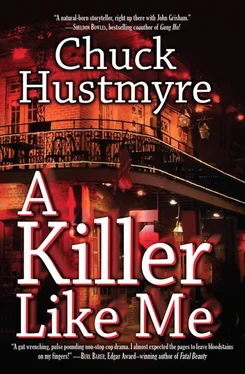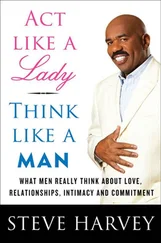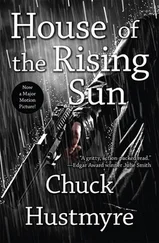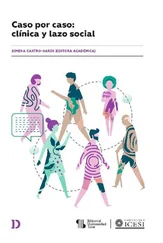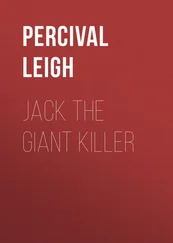Chuck Hustmyre - A Killer Like Me
Здесь есть возможность читать онлайн «Chuck Hustmyre - A Killer Like Me» весь текст электронной книги совершенно бесплатно (целиком полную версию без сокращений). В некоторых случаях можно слушать аудио, скачать через торрент в формате fb2 и присутствует краткое содержание. Жанр: Триллер, на английском языке. Описание произведения, (предисловие) а так же отзывы посетителей доступны на портале библиотеки ЛибКат.
- Название:A Killer Like Me
- Автор:
- Жанр:
- Год:неизвестен
- ISBN:нет данных
- Рейтинг книги:4 / 5. Голосов: 1
-
Избранное:Добавить в избранное
- Отзывы:
-
Ваша оценка:
- 80
- 1
- 2
- 3
- 4
- 5
A Killer Like Me: краткое содержание, описание и аннотация
Предлагаем к чтению аннотацию, описание, краткое содержание или предисловие (зависит от того, что написал сам автор книги «A Killer Like Me»). Если вы не нашли необходимую информацию о книге — напишите в комментариях, мы постараемся отыскать её.
A Killer Like Me — читать онлайн бесплатно полную книгу (весь текст) целиком
Ниже представлен текст книги, разбитый по страницам. Система сохранения места последней прочитанной страницы, позволяет с удобством читать онлайн бесплатно книгу «A Killer Like Me», без необходимости каждый раз заново искать на чём Вы остановились. Поставьте закладку, и сможете в любой момент перейти на страницу, на которой закончили чтение.
Интервал:
Закладка:
“Cable tie,” Murphy said. The smell of the blood was making him sick.
Gaudet stood up. “The MO doesn’t fit. Whoever did this got off on squeezing the life out of her with his hands.”
Murphy inhaled a deep breath through his mouth. The air tasted like copper on the back of his tongue. His stomach was doing flip-flops. “I’ve got to get some fresh air.” He bolted toward the kitchen.
The back door was blocked by a crime-scene tech, hunched over the lock, snapping pictures of the pry marks. Murphy spun around and rushed out the front door. When he reached the end of the porch, he bent over and threw up on the flower garden.
After he finished, Murphy wiped the back of one hand across his mouth, then instinctively fished in his jacket pockets for his cigarettes. A smoke would at least mask the taste in his mouth. When his hands came up empty he remembered he had left the nearly empty pack in his car. He glanced around, trying not to make eye contact with the neighbors staring at him from beyond the yellow crime-scene tape.
Half a block to Murphy’s right, squatting on his haunches near the middle of the street, was another crime-scene technician.
Near where I was parked last night.
The tech looked away when Murphy caught his eye, probably embarrassed to see a veteran homicide detective puke at a murder scene.
Unable to see what the man was doing, Murphy stepped off the porch and walked across the yard. The presence of the crime-scene tech so close to where he had parked last night was unsettling.
Relax, he told himself.
As he got closer, Murphy saw that the tech was using a pair of tweezers to pick at a pile of cigarette butts, then dropping them one by one into a brown evidence envelope.
Murphy’s heart started fluttering.
Those are my cigarette butts.
He flashed back to last night, to the hours he had spent sitting in his car watching Marcy Edwards’s house, smoking cigarette after cigarette. Half smoking them really, then tossing them out the window. Into a nice neat little pile.
“You must really be jonesing for a smoke,” Murphy told the crime-scene tech, “if you’ve got to pick butts up off the ground.”
The tech looked up. He was a young black guy, thin like a cross-country runner, wearing a dark blue crime-scene jumpsuit. “I was walking the outer perimeter,” the tech said, “and I ran across this pile of butts. Could be the killer sat here watching the house while he worked up his nerve.”
“That’s good work.”
Those cigarette butts have my DNA on them.
Murphy glanced over his shoulder at the house, then back at the tech. “They’re kind of far from the scene. You sure you want to waste your time processing those?”
The tech dropped the last cigarette into the envelope. He stood up. “I don’t mind. If it turns out to be nothing, it still gives us another profile. If the guy didn’t do this, maybe he did something else, or maybe he’ll do something in the future and we’ll already have his profile in the database.”
The database.
The state DNA database was really two systems: the offender database and the forensic database. DNA samples taken from state prisoners went into the offender database. DNA evidence recovered from crime scenes went into the forensic database, the entire contents of which were regularly run against the DNA profiles in the offender database. That technology routinely produced cold-case hits on crimes that were years, even decades, old.
Murphy realized that after today his unidentified DNA profile would be in the forensic database, just waiting for a chance match with the profile of Sean Patrick Murphy. He knew he wasn’t in the offender database, but just the thought of his profile-a profile linking him to a murder-residing forever in a state computer system made him break out in a cold sweat. He pulled a handkerchief from his pocket and mopped his forehead.
“You all right?” the crime-scene tech asked.
Murphy shook his head to clear it. “Yeah, I’m fine. Actually, I just came over to bum a cigarette.”
“I don’t smoke,” the tech said.
“Good for you,” Murphy said as he turned around and walked away.
Trudging back toward the house, he imagined a few nightmare scenarios that could lead to his DNA being matched to the DNA in those cigarette butts.
Although most of the profiles in the offender database came from convicted felons, some of them came from people who were only suspects or mere persons of interest. Some of that DNA was obtained by court order, the rest by consent. And all of it got dumped into what the state had dubbed the offender database.
Sometimes policemen landed in it.
A hundred and fifty miles west of New Orleans, a serial killer had murdered eight women in and around the small town of Jennings. Local suspicions that the killer was a law-enforcement officer were so strong that the sheriff ordered every deputy and policeman in the parish to submit a DNA sample so he could quash the rumors hanging over the case.
An even more likely scenario was that some bumbling detective or crime-scene tech would spit on the floor or cut his finger and compromise the integrity of the Marcy Edwards crime scene. Then the rank would order everyone who had worked the scene to submit a DNA sample for elimination.
And it wasn’t just this scene he had to worry about, Murphy realized. It could be any crime scene he worked from now until the end of his career.
Son of a bitch.
Kirsten sat at her desk and stared at the TV mounted on the wall above the newsroom. The five o’clock news was on.
Channel 6 meteorologist Maggie Gallegos was standing in front of a map of the Gulf of Mexico. The sound was off, but Kirsten could tell by the look on the face of the tall, aging redhead that she was nervous. Gallegos was famous for her on-air meltdown the year before Katrina, when, as Hurricane Ivan bore down on New Orleans, she shouted into the camera, “It’s too late to get out. We’re all doomed!” The storm turned at the last minute and wrecked Alabama.
The television map showed the eye of Hurricane Catherine, a cat-four monster, already well into the gulf and driving hard toward New Orleans.
“I thought the storm was still near Miami,” Kirsten said to the reporter in the next cubicle.
“Huh?” came the man’s reply.
Kirsten could only see the top of his head. “The hurricane,” she said. “I thought it was heading to Miami.”
“It barely touched Miami,” the reporter said. “Since then it’s picked up a lot of speed. The computer models are projecting a path straight for us.”
The phone on Kirsten’s desk rang. She picked it up. “Sparks.”
“What did you find in the morgue?” Gene Michaels said.
“Bodies.”
The city editor laughed. “I guess I asked for that.”
“Father Ramon Gonzalez,” Kirsten said.
“The priest who got killed in the French Quarter?”
“Whoever wrote the letter either killed him or is trying to take credit for it.”
“But the police caught the guy who did that,” Michaels said. “It was some gutter punk.”
“The case never went to trial. The kid hanged himself.”
“Anything else?”
“A gay street hustler got stabbed to death next to Saint Louis Cathedral six weeks before Father Gonzalez.”
“Jesus.”
“I doubt it,” Kirsten said. “He’s got an alibi.”
Gene Michaels let out another short laugh. “Seriously though, you think this guy has something against the Catholic Church?”
“I don’t know,” Kirsten said.
“We can’t say he’s claiming to have killed either one, since the letter is so vague.”
“But we can say that while we were researching the letter we found two cases that seem to match the murders the killer described.”
Читать дальшеИнтервал:
Закладка:
Похожие книги на «A Killer Like Me»
Представляем Вашему вниманию похожие книги на «A Killer Like Me» списком для выбора. Мы отобрали схожую по названию и смыслу литературу в надежде предоставить читателям больше вариантов отыскать новые, интересные, ещё непрочитанные произведения.
Обсуждение, отзывы о книге «A Killer Like Me» и просто собственные мнения читателей. Оставьте ваши комментарии, напишите, что Вы думаете о произведении, его смысле или главных героях. Укажите что конкретно понравилось, а что нет, и почему Вы так считаете.
